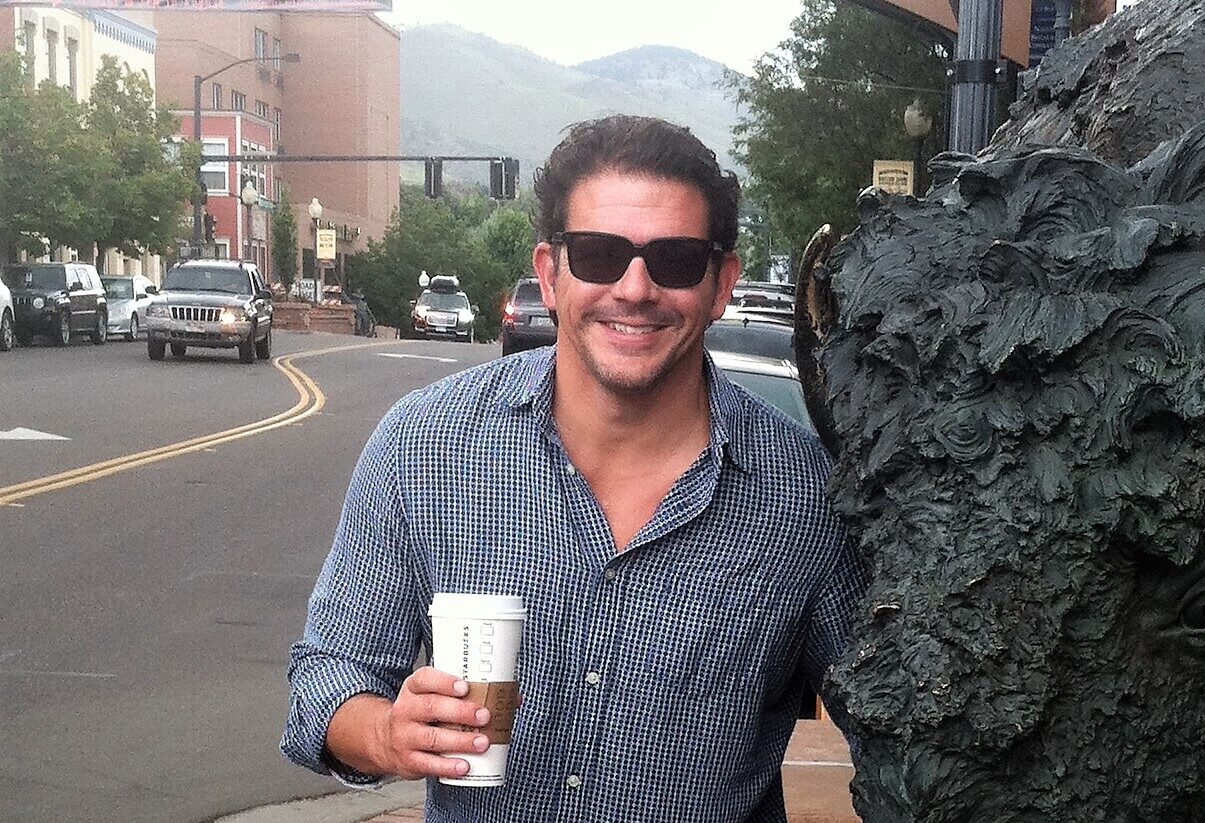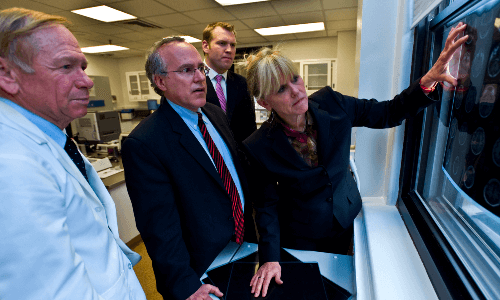Larry Facchine grew up in western Pennsylvania as a star athlete. He played both ways in football for Arizona State University and was a standout on the team’s undefeated 1963-64 season. In 2011, Facchine began struggling with speech issues, which precipitated other cognitive and behavioral changes. He passed away in December 2019 at age 78. His brain was later studied at the UNITE Brain Bank, where researchers diagnosed him with CTE. His widow Lorraine is sharing his story to share the effects of and raise awareness for CTE.
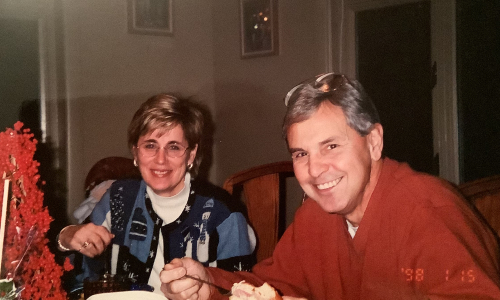
Larry Facchine grew up as an outstanding athlete, excelling in every sport he participated in – basketball, baseball, golf, tennis, and primarily, football. He was raised in Vandergrift, Pennsylvania, your typical small western Pennsylvania town where, like in the majority of Pennsylvania towns, everyone looked forward to Friday night high school football. There could have been no better place for Larry to spend his school years. His last four years of high school found him on the football field every Friday night doing what he loved.
After graduating from high school, he accepted a scholarship to play for Arizona State University. He loved ASU and he loved playing for the Sun Devils. He played both quarterback on offense and safety on defense and was a three-year letterman. He played hard and got hit hard. During one game, he was hit so hard his helmet broke. His senior year in 1963-64 was an exceptional year. The team had an undefeated season and he received the “Mr. Hustle Award” given for outstanding performance.
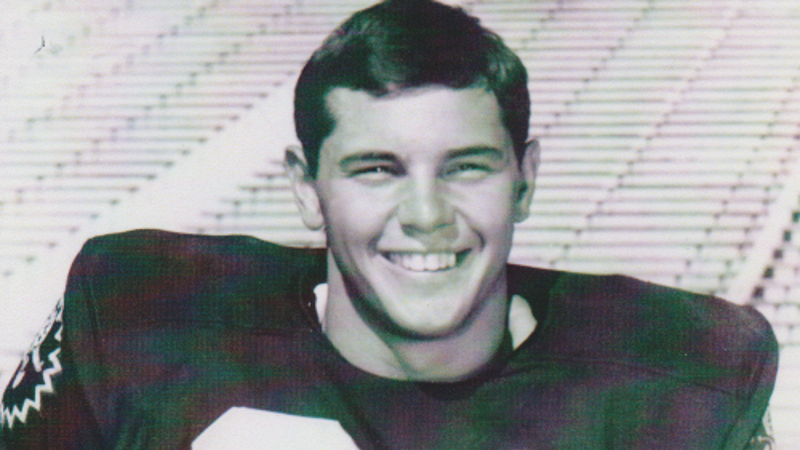
Larry and I met in the summer of 1969 when he returned to Vandergrift after coaching in Arizona. I had never met anyone who had his drive. He was tireless and relentless in his thirst for learning about everything imaginable. Nothing was ever “good enough” for Larry. He always tried to make himself or what he was doing better. I know these traits are what helped him succeed in everything he did.
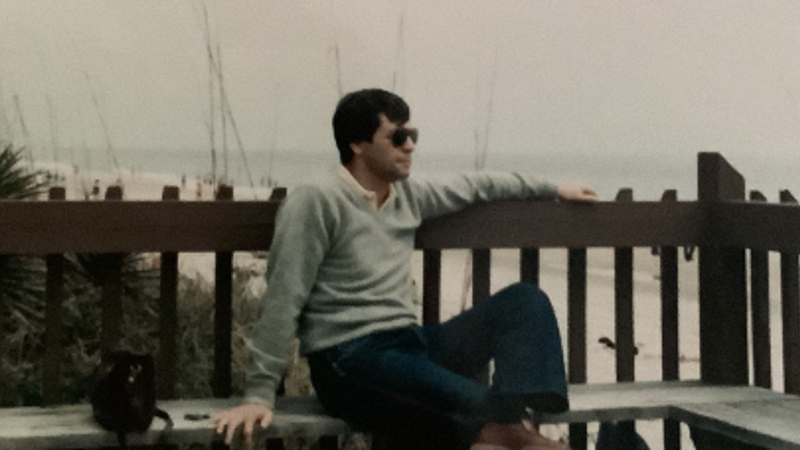
I had just signed a contract for my first year of teaching and Larry had taken a teaching and assistant coaching position at the Jeannette School District nearby. He worked with an incredible group of young players. In his third year with them, they won the Western Pennsylvania Interscholastic Athletic League Championship. It was one of the proudest memories of Larry’s football career. It made him realize how coaching, mentoring, encouraging others, and watching them succeed were what gave him the most satisfaction. After that third year, Larry accepted a head coach and athletic director position in another district, but he took with him a special, life-lasting bond he had fostered with so many of the players.
In the years that followed, along with coaching football, he gave golf and tennis instructions to youths and adults, became an emergency medical technician, taught golf at a community college, and began practicing intently to qualify for the senior golf tour in the future.
About seven years after he left Jeannette, his former quarterback stopped at the house for a visit. He was working for a water treatment company and had his boss with him. He had told his boss that Larry would be a perfect representative for the company because of his drive and personality. And that was the beginning of his career in the water treatment business. After working with the company for nine years, he decided to begin his own company and did so very successfully. And still he continued with giving golf and tennis lessons, coaching Little League, and practicing his golf to achieve his goal of joining the senior golf tour in the future. He never stopped touching lives and encouraging those he mentored.
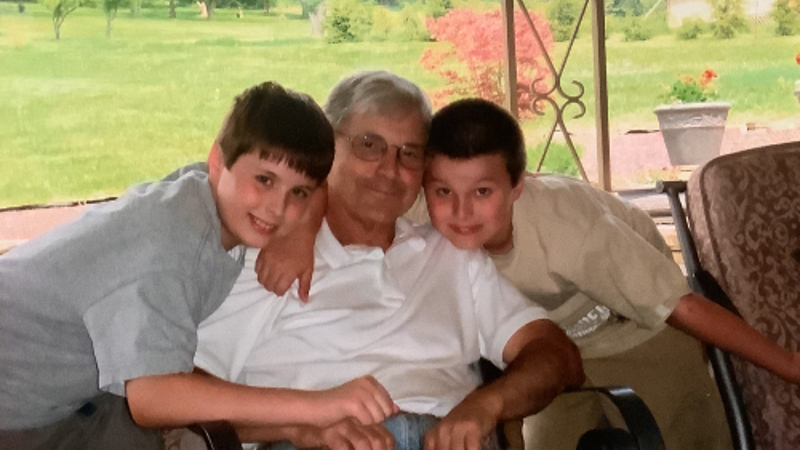
Many years later, in 2011, Larry noticed he began “losing” words. He would know what he wanted to say but couldn’t retrieve the words. He thought it might be the beginning of Alzheimer’s Disease, so he met with doctors who put him through extensive intellectual and medical testing. It was determined he didn’t have the beginning of Alzheimer’s but did have blockage of the blood flow to the left side of the brain due to head trauma. Since this area of the brain was the language center of the brain it explained the occurring language problem.
Larry had great respect and confidence for our family doctor. We kept him informed about the Alzheimer’s study, the language problem, and all his developing mental and behavioral changes. It was our doctor who first mentioned the possibility of CTE. That was quite a surprise because it had been 46 years since Larry had been on the football field. As time went on, Larry started suffering periods of depression, thoughts of suicide, and unexplainable bouts of anger. Not only did he have trouble communicating but he had difficulty processing what was being said to him. Because Larry would only see our family physician, our doctor consulted with his neurology staff for possible medications that might help the changes being experienced. When medications were not helping and Larry’s condition was worsening, our doctor suggested a hospital stay to try to get a regiment of medication that might help manage the ever-changing conditions Larry was experiencing.
Larry spent 11 weeks in the hospital and finally came home with a treatment that worked. The treatment didn’t eliminate his problems but helped with them. Unfortunately, this treatment also created other new problems and took so much more away from him. He had to get used to a now unfamiliar home and no longer knew our friends and relatives.
Conditions for him worsened and after six months at home I realized I could no longer give him the care he needed because of the ever-changing behaviors. After searching for and visiting many facilities, I finally found Newhaven Court Memory Care which proved to be his home for the next two years beginning in January 2018. It was heartbreaking to face this major change in our lives.
Surprisingly, Larry adjusted to the change better than I ever would have imagined. The director of the Center took a personal interest in CTE when I told her that might be what we were dealing with. She researched CTE and learned as much about it as she could. She trained her staff to provide phenomenal care for Larry. At this time, he no longer knew people’s names and could not carry on a conversation or answer simple questions, but he seemed more content and calm. Within a few months, because his physical abilities were diminishing so rapidly, he started receiving the care of a wonderful hospice group. I spent many hours with him every day and was awed by the love and care the group continually gave Larry. As he lost the fight against the effects of what we believed to be CTE and could no longer speak or walk or eat, I was at least at peace with knowing he had had the best possible care.
Larry passed away on December 22, 2019. He was 78 years old. His brain was then studied at the UNITE Brain Bank, and the results of the CTE Neuropathology Report from Boston University CTE Center confirmed Larry did have CTE in addition to severe Alzheimer’s Disease. Knowing this didn’t change my sadness or the unbelievable loss I felt, but at least I had a reason for all that he had suffered. CTE had taken away many healthy years that he could have had, but it didn’t take away the person he was and the lives he touched. Even now I am constantly reminded of that by visits, phone calls and letters from those he mentored. That, indeed, was his legacy.
Becoming aware of the Concussion Legacy Foundation and all the research and studies being conducted to advance public understanding of CTE gives me such hope for the future. So many strides have already been made and much more will be achieved in the future because of the determination and hard work of everyone involved in the Foundation. I am forever grateful for their assistance and support and I am proud to be a part of it in some small way on behalf of my husband.
